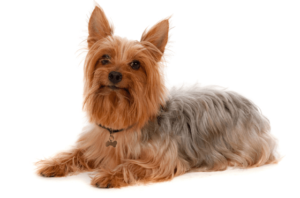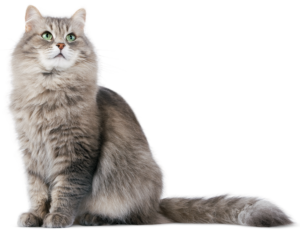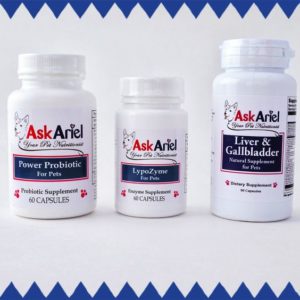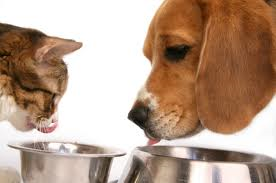Has your pet been diagnosed with elevated liver enzymes, liver disease or gallbladder disease? Liver disease in cats and dogs can respond very well to holistic treatments. Your pet’s liver is important for the digestion and conversion of nutrients, the removal of toxic substances from the blood and the storage of vitamins and minerals. With pollution and chemicals in our environment and food, the liver can become overloaded. High liver enzymes in dogs and cats is common but the liver is one of the few organs in the body that can regenerate new healthy tissue. Pets with compromised liver function can show significant improvement when they are fed a liver-friendly diet and given the best natural liver support for dogs and cats.
Dogs and cats with liver disease may also have gallbladder problems. Symptoms of an inflamed gallbladder or bile duct are similar to those produced by liver disease and can include a loss of appetite, jaundice and vomiting.
Conventional veterinary treatment for liver disease in pets depends on the cause of the illness. Common causes of liver disease in cats and dogs include:
- Acute liver disease – due to an exposure to a toxic substance or excessive heat
- Bile duct obstruction – result of inflammation or infection of the duct; gallbladder mucocele or cholecystitis
- Hepatic lipidosis in cats – excessive accumulation of fat in the liver
- Side effect of medications – long term use of antibiotics, steroids, parasiticides (flea and tick control), barbiturates (to control seizure activity), NSAIDs (nonsteroidal anti-inflammatory drugs)
- Viral, bacterial, fungal, or parasitic infections

Symptoms of Liver Disease in Cats and Dogs
There are four main factors that increase the likelihood of your pet developing liver disease: age (more common in geriatrics), breed, obesity, and medications and chemicals that it may come in contact with. The clinical signs of liver disease can manifest in a wide variety of symptoms due to the multiple functions of the liver. Liver disease in dogs and cats can be caught early with regular laboratory testing. Watching for these signs can improve the prognosis of your pet:
- Loss of appetite
- Jaundice (yellowing of the gums, whites of the eyes, or skin)
- Increased thirst and urination
- Vomiting or diarrhea
- Changes in behavior (pacing, circling or even seizures)
- Weight loss
- Excessive drooling
- Lack of energy or depression
- Dark-colored urine or discolored stool
- Pale gums
- Ascites (buildup of fluid in the abdomen)
Certain dog breeds are more likely to be born with or develop liver disease. These breeds include Dobermans, rottweilers, Maltese, Yorkshire terriers and cocker spaniels. In cats, the Siamese breed is more likely to have liver-associated problems.

Bailey Rose
“I just wanted to give you an update on my Yorkie Bailey Rose. Bailey Rose had high ALT levels and an abscess on her liver. Her last blood work before starting the Pancreatitis and Liver Support Kit showed liver enzymes 4 times what they should be and her WBC was 40,000. She continued on her antibiotics (for a bacterial infection) and started the Kit on Oct 1 as soon as I received it. I took her for her recheck yesterday (a few weeks later) and the vet called today and was amazed that all her levels including WBC were all in normal levels and after losing a pound she has got back to her normal weight! Even though she is almost 13 she is doing wonderful and acting like a puppy again. I also changed her food to the natural blend fish and sweet potato Ask Ariel suggested and she loves it. Thank you so much for helping me to help my sweet baby.” – Cherie, Indiana 2016
What Is Liver Disease & Liver Failure in Cats and Dogs?
In many ways, your pet’s liver is analogous to the oil filter in a car. You need to keep it clean or the “blood” (e.g., oil in the car) gets dirty. When the liver becomes overextended, the body cannot filter out as much as it should and toxins are released into the bloodstream. These toxins can cause harm to other tissues, which in holistic medicine is thought to be the root of disease. Since the liver is an integral component of so many critical bodily functions, it is easy to see the domino effect that can occur when the liver becomes overloaded, which then leads to liver disease (elevated liver enzymes). For instance, when a person drinks too much alcohol, the liver can’t keep up with the necessary cleaning action to process the toxins, and people often develop other health conditions, such as increased levels of fat in the blood (triglycerides). Similarly, if your pet’s liver becomes overloaded following years of poor diet, medications and exposure to toxins, this can lead to liver disease (elevated liver enzymes in cats and dogs).
The liver is the main filtering system for the body since all blood supply travels through it to be detoxified. The liver performs many critical functions:
- Metabolism of fats, protein and carbohydrates
- Filtering of harmful substances from the blood (e.g., toxins and/or medications)
- Storage of vitamins and minerals
- Production of bile, which aids in digestion and absorption of nutrients
- Glycogen storage (involved in blood sugar regulation)
- Synthesis of important proteins such as albumin and clotting factors
- Red blood cell maintenance, in conjunction with the spleen
A pet may have NO outward symptoms that the liver is overburdened. Liver disease (elevated liver enzymes) may only be discovered in a laboratory test and/or a physical exam by your veterinarian. During the physical examination, your veterinarian will look for signs of liver disease, such as a distended abdomen due to enlargement of the liver, bruising under the skin, fever (due to secondary infection or inflammation), pain when pressure is applied to the abdomen or yellowish discoloration of the ears, gums and hairless areas of the skin. Anemia might be observed when the vet checks the mucous membranes for a normal pink color.
Since pets may have no symptoms, however, diagnostic laboratory tests that check for elevated liver enzymes will provide the most valuable source of information. For example, a young pet may have a congenital condition such as microvascular dysplasia or a liver shunt, and the symptoms may not be apparent until the pet is one or two years old. A blood test may be the only way to know. There are certain blood values, for example, that if abnormal, may signify liver disease.
Some breeds are also predisposed to progressive liver diseases. Bedlington terriers, Dobermans, West Highland terriers, Skye terriers, and Labrador retrievers are more susceptible to copper-storage hepatopathy. The condition can also occur in cats, although it is less common. Copper-storage hepatopathy results from the abnormal accumulation of copper in the pet’s liver. It can lead to cell damage, chronic inflammation (hepatitis) and scarring of the liver (cirrhosis).

Liver Values That Can Appear in Your Pet’s Test Results
- Alanine Aminotransferase (ALT) – An enzyme that becomes elevated with liver disease.
- Alkaline Phosphatase (ALKP) – An enzyme produced by the biliary tract (liver) that can be elevated in liver- and non-liver-related diseases. High levels can indicate bone disease, liver disease or bile flow blockage.
- Gamma Glutamyltransferase (GGT) – An enzyme produced in many tissues as well as by the liver. Like alkaline phosphatase, it may be elevated in the serum of patients with bile duct diseases. Elevations in GGT, especially along with elevations in alkaline phosphatase, can indicate impaired bile flow.
- Total Bilirubin (TBIL) – A component of bile, bilirubin is secreted by the liver into the intestinal tract. Bilirubin is a byproduct of the breakdown of hemoglobin. Hemoglobin is found within red blood cells and carries oxygen to the tissues. When red blood cells die, hemoglobin is broken down by the liver as bilirubin. Elevated bilirubin levels can be caused by excessive numbers of red blood cells breaking down or when the liver is diseased and unable to clear the bilirubin from the blood. Also, if there is an obstruction in the bile duct, the flow of bilirubin into the intestine is impaired and this can also cause elevation of bilirubin in the blood.
- Albumin (ALB) – Produced by the liver, albumin is a plasma protein that helps control osmotic pressure in the tissues. When albumin is low, fluids can leak, resulting in a swollen abdomen. Low levels of albumin can indicate chronic liver or kidney disease, or parasitic infections such as hookworm. High levels indicate dehydration and loss of protein.
A urine analysis and X-rays can provide valuable information as well. If signs and symptoms appear that indicate a pet’s liver is not functioning optimally, additional tests are warranted to determine the underlying cause. A bile acid test, ultrasound and/or liver biopsy may be needed to determine the reasons behind your pet’s poor liver function. Your veterinarian will recommend medications, diet changes and potential surgical procedures upon determining the cause of your pet’s liver disease.

Miss Ladybug
“I wanted to share with you that last year Miss Ladybug was diagnosed with a possible Gallbladder Mucocele and the vet put her on Ursodiol but it made her very sick, so instead she has been taking the Liver & Gallbladder Supplement, Power Probiotics, and Lypozyme everyday faithfully. We just had another ultrasound check and this time they said everything looks good, that they wouldn’t even say that it’s a Mucocele anymore – it just looks like a gallbladder and hasn’t gotten bigger. Her blood work was also wonderful – kidneys and liver (everything actually) were in range. Not bad for a 13 year old puppy mill rescue 🙂 They did find a little irritation in the intestines that they feel could be IBD so I knew right away that I would be getting your Soothing Digestive Relief formula this time too. Thank you so much for your amazing products because I truly believe they have extended my baby’s life!” – Marissa M., Colorado
The Best Liver Supplements for Dogs and Cats To Detoxify the Liver and Reduce Gallbladder Problems
Holistic treatments for liver disease work best when natural liver support for dogs and cats is used in conjunction with cat or dog liver disease treatments prescribed by your veterinarian. Liver supplements can help repair and regenerate your pet’s liver cells. Liver supplements for dogs and cats can help to break down fats and protein, support detoxification and improve liver function. Ask Ariel’s vitamins for cats and dogs with liver disease can help pets live a higher-quality and longer life than initially predicted.
Special SAMe for Dogs is the most important supplement to use if your dog has elevated liver enzymes. S-adenosylmethionine supports the liver by supplementing metabolic activity. Backed by scientific research, this powerful antioxidant has been shown in research studies to detoxify the liver and promote cell regeneration.
LypoZyme For Pets improves the digestion of fats and proteins. It’s gentle enough for a tiny pet and effective for larger pets. Liver disease in dogs and cats is often accompanied by digestive problems such as diarrhea and acid stomach. LypoZyme relieves digestive symptoms associated with liver disease in pets.
Power Probiotic is the best probiotic for pets! Backed by scientific research, this powerful multi-strain formula promotes the growth of good bacteria that support healthy liver function and digestion. Pure and natural, Power Probiotic does not contain any fillers. Many pets love the taste of the Power Probiotic!
Liver & Gallbladder Supplement contains milk thistle for pets, which is the hallmark ingredient in this broad-spectrum liver support supplement for dogs and cats. Milk thistle is a great detoxifying nutrient whose active ingredient, silymarin, is a flavonoid with anti-inflammatory and antioxidant properties that protect the liver against toxins and stimulate regeneration of damaged liver cells. Along with milk thistle for dogs and cats, Ask Ariel’s Liver & Gallbladder Supplement for Pets contains human-grade nutrients scientifically proven to support liver health.
This easy-to-use liver support supplement for dogs and cats also improves gallbladder function and bile flow. It can help detoxify your pet by helping to flush medications and environmental pollutants and toxins.
Ask Ariel’s Liver & Gallbladder Natural Supplement is an excellent home remedy for pets of all ages, especially senior pets and those with liver or gallbladder conditions.

Pancreatitis & Liver Support Kit is an exceptional value and includes three remedies: Power Probiotic, LypoZyme and the Liver & Gallbladder Natural Supplement to improve digestion, support liver and gallbladder health and reduce gastric distress. Using this combination of formulas together has not only provided liver support for dogs and cats but also reduced symptoms of ascites and abdominal swelling associated with liver disease.
- Backed by science
- Veterinary-approved and -recommended
- Easy to administer and well tolerated by both cats and dogs
- Supports liver health
- Relieves digestive symptoms and indigestion
- Improves digestion of fats and protein, reducing pancreatic flare-ups
- Excellent for pets with elevated liver enzymes, diabetes, and Cushing’s disease
Oxicell SE contains key antioxidants that support the liver in an easy to use topical cream (nutrients absorb through the skin).

Best Liver Disease Diet for Dogs and CatsThe best dog foods for liver disease are hypoallergenic, low fat diets that do not contain grains, chemical preservatives or artificial food colorings and dyes. A low-fat, fresh diet can be very beneficial. Green vegetables contain fiber, vitamins and minerals and can support a healthy liver.
Many pets are eating prescription diets that can contain chemicals, food allergens and grains when low-fat natural liver diets are available. Include your pet’s treats and diet on the order form at checkout, and we will include free liver diet tips on the packing slip that comes with your order.
Need Help?
We understand how hard it is when your pet is suffering from liver disease, and we will do all we can to help. It can be confusing to know which cat and dog supplements would be appropriate for your pet. Please email us at Support@AskAriel.com. Please note that we cannot provide consultative advice due to veterinary regulations, but we will be happy to provide articles and information so that you can make an informed decision about what’s best for your pet.
|
|







